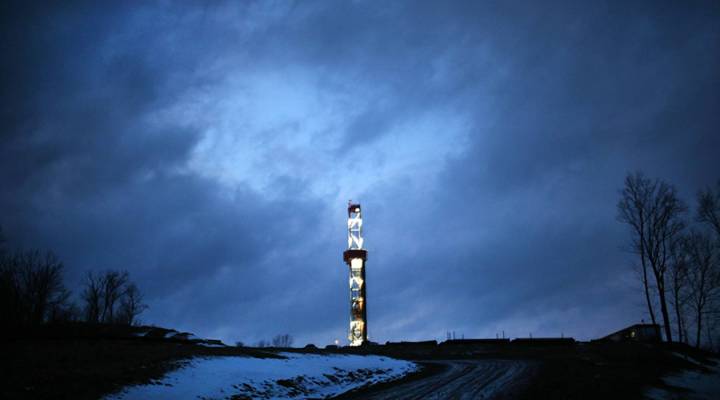
Oil prices are high. So why aren’t U.S. oil producers drilling?
Oil prices are high. So why aren’t U.S. oil producers drilling?

Oil prices dipped today as OPEC and its allies failed – again – to come to an agreement about production levels over the next year.
That being said, Brent Crude and West Texas Intermediate still closed right around $74 a barrel, which – for most producers in the U.S. – is far above break even. And yet, American oil drillers aren’t producing anywhere near what they were a couple of years ago.
So, what’s going on? Typically when oil prices spike, it’s time to drill, right? Maybe not.
It turns out there’s a lot that’s holding American producers back. Ellen R. Wald, president of Transversal Consulting, said first and foremost is the idea of “capital discipline.”
“Some of it is definitely due to this emphasis now on paying down debts and return on investment. But also we’re seeing a real reluctance among investors to shell out more money for new drilling,” she said.
She said many institutional investors got burned over the last decade when the attitude in energy was all about growth – before prices tanked.
That leads to the question Jesse Thompson at the Federal Reserve Bank of Dallas said producers are asking themselves before completing more wells: “Is this, you know, something that we’re going to be able to raise investor capital to do?”
Even if the cash is there, there are other factors at play as to why U.S. producers are reluctant. Oil companies have to consider the regulatory ambitions of the Biden administration, said Antoine Halff, a founding partner at the energy consultancy Kayrros – especially when it comes to the methane that leaks out of oil wells.
“There’s probably a concern among producers that they need to be very careful not to ramp up the methane emissions to match and to toe the line and to try to reduce their footprint as much as they can,” he said.
But … at around $74 a barrel? Michael Lynch, a fellow at the Energy Policy Research Foundation, said despite all of these issues, that’s still a very tempting number for any oil company.
“The industry tends to promise capital discipline and slowly drift into irrational exuberance. So if the price stays up long enough, you will see the financial taps open,” Lynch said.
Give it a year, Lynch adds, and reluctance to drill will be a thing of the past.
There’s a lot happening in the world. Through it all, Marketplace is here for you.
You rely on Marketplace to break down the world’s events and tell you how it affects you in a fact-based, approachable way. We rely on your financial support to keep making that possible.
Your donation today powers the independent journalism that you rely on. For just $5/month, you can help sustain Marketplace so we can keep reporting on the things that matter to you.











